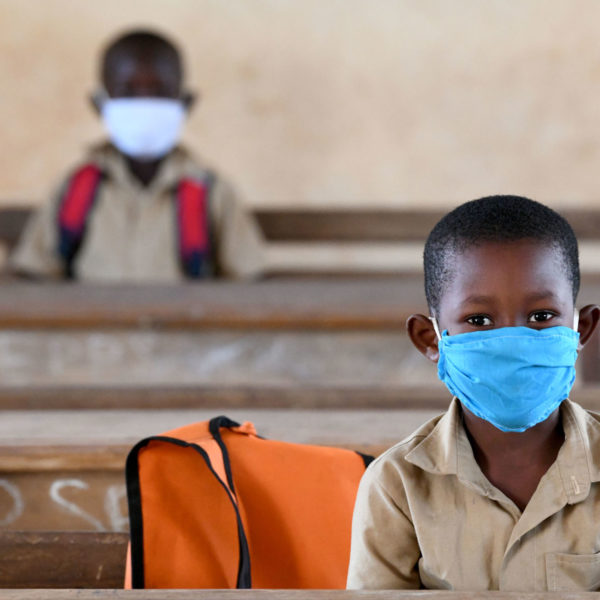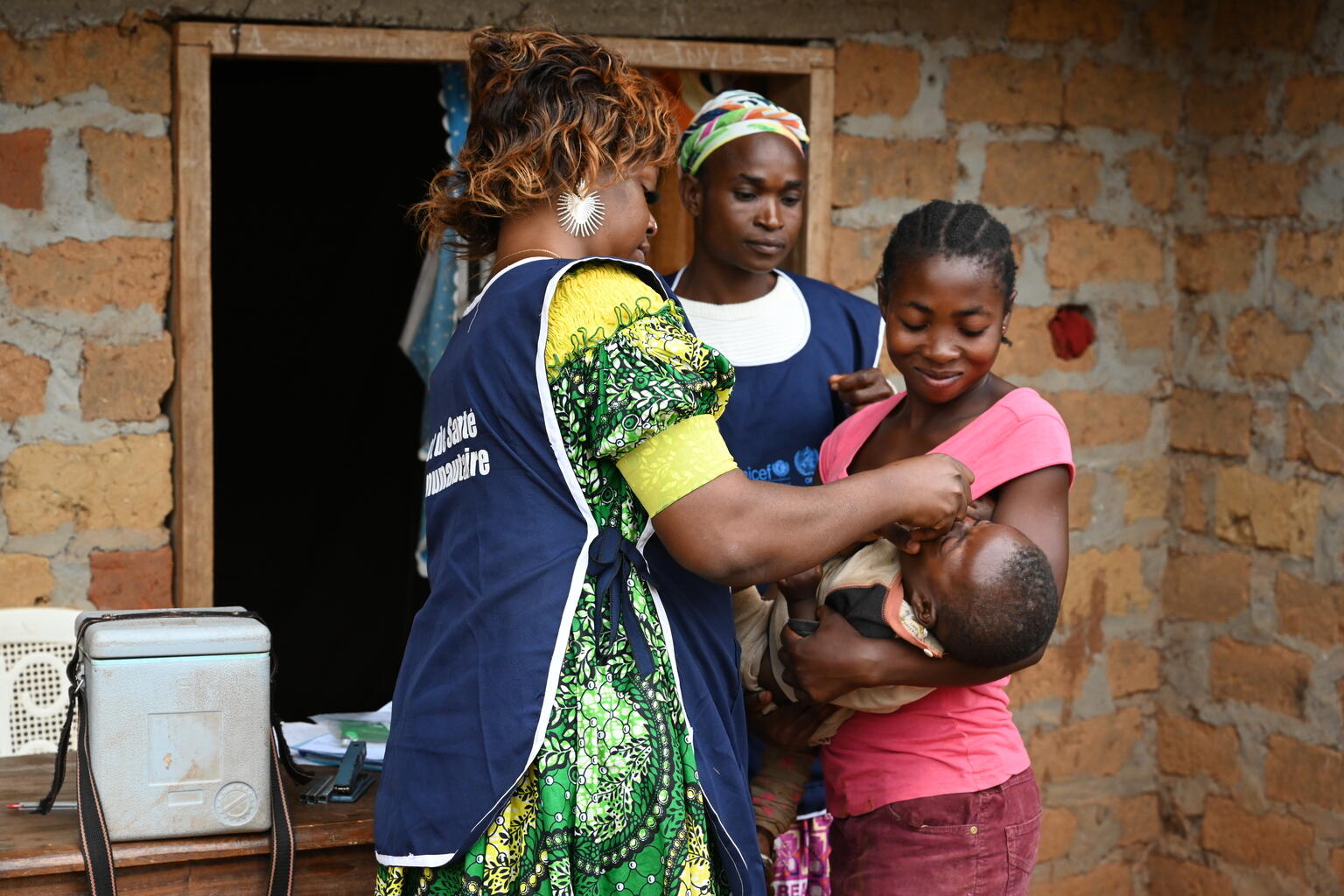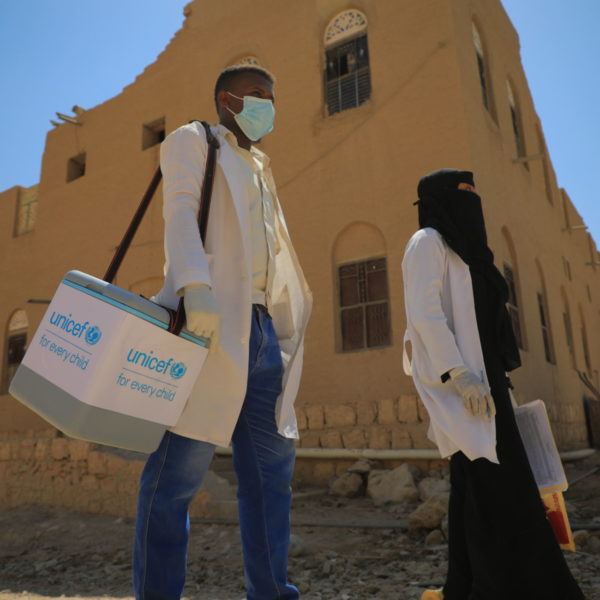


Blog - Futures at Risk: The largest decline in immunisation coverage in a generation leaves conditions rife for a child survival crisis
By Neil Raw – Senior Policy Advisor
On Friday 15th 2022, the World Health Organisation and UNICEF revealed new data that shows immunisation coverage for children around the world has decreased for the second year running, marking the largest sustained decline in 30 years.
This data shows the impact that disruption to routine immunisation services caused by the COVID-19 pandemic, conflict and crisis around the world has had, leaving millions of children vulnerable to preventable debilitating and life-threatening diseases such as diphtheria and measles.
Even prior to the COVID-19 pandemic, almost 20 million children missed out on basic vaccines each year. The pandemic has ignited an extremely concerning decline that puts millions at children at risk but has also exposed deficiencies in routine immunisation and primary health care (PHC) services that must be urgently rectified.
The largest decline in a generation
The new data shows that in 2021, 25 million children missed out three doses of diphtheria, tetanus, and pertussis (DTP3), the benchmark measure for child immunisation coverage. This represents a serious backsliding in progress and is the highest number of children to miss out on basic vaccines since 2008. 18 million children did not receive a single DTP vaccine – the highest number of ‘zero-dose children’ since 2005.
In addition to decreases in DTP3 coverage for the first dose of a measles containing vaccine (MCV1) coverage has also fallen to 81% – the lowest level coverage for MCV1 since 2008.
While some countries have had success in sustaining and increasing routine immunisation in recent years (with Uganda, Bangladesh and Pakistan having been able to restore or even increase coverage based on pre-pandemic levels), 112 countries have faced declining or stagnating immunisation coverage since 2019.
Many factors have contributed to the observed decline, with COVID-19 having contributed to service and supply chain issues placing strain of countries health systems requiring the diversion of vital resources to the COVID-19 response. Furthermore, increases in the number of children living in fragile and conflict affected settings and a rise in vaccine misinformation have compounded disruption to routine immunisation services.
A lifesaver and entry point to the health system
Immunisation is one of the most effective global public health interventions, saving up to 3 million lives each year. Working alongside partners, UNICEF helps vaccinate 45% of the world’s children. Not only does immunisation prevent children suffering from disease but it also acts a crucial entry point to the wider health system for children living in low- and low-middle countries, children who come into the contact with the health systems through the reach of immunisation can then access a wide range of other essential health interventions including nutrition services, services for water and hygiene and malaria prevention.
Conditions rife for a child survival crisis
Given this data has been related against backdrop of rising malnutrition rates globally, it is clear that conditions are now rife for an unprecedented child health crisis. Rising malnutrition means an increase in children around the world with weakened immune systems, which compounded with increases of children not receiving essential vaccines presents severe risk to child mortality in many countries around the world.
Earlier this year, UNICEF reported that cases of measles in January and February had increased 79% compared to the previous year, with outbreaks particularly prevalent in the Eastern Mediterranean region and sub-Saharan Africa. Lack of access to vaccination was found to be the key determining factor in these outbreaks. The sharp decline in MCV1 coverage in deeply concerning and puts 25 million children at risk of this highly contagious and potentially fatal disease.
Action needed now for every child
There is a need to urgently catch-up on missed children. In 2022 no child should suffer or die from diseases that we can prevent with vaccination.
The UK Committee for UNICEF (UNICEF UK) believe that the response to the COVID-19 pandemic and preparations for future pandemics offer an opportunity to invest in primary health care, strengthen routine immunisation services and build the resilient global health architecture needed to ensure all children receive access to lifesaving vaccines and other essential health services.
Strengthening immunisation systems requires targeted approaches to building confidence of communities in vaccination and healthcare services, strengthening of countries vaccination logistics supply chains, establishing effective surveillance and response systems and logistics and expansion of the health workforce. Investments in research and development for vaccination can also be leveraged to create new vaccines as well as improve existing ones.
As a leading donor and key global health stakeholder, the UK Government is uniquely placed to work with global health partners to drive cohesive approaches to systems strengthening and pandemic preparedness.
Find out more



